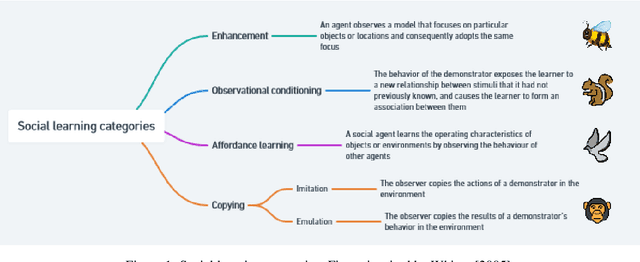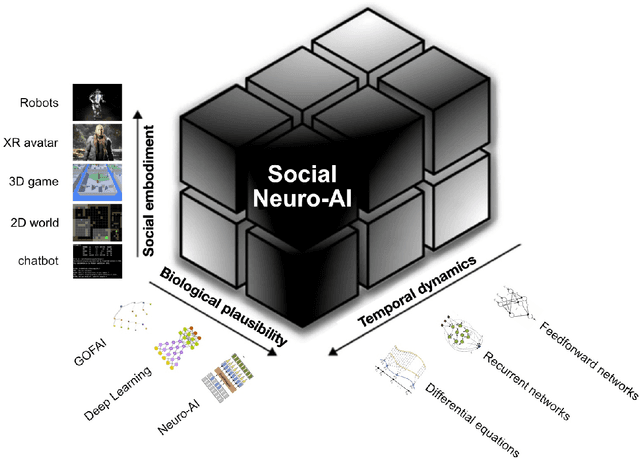Social Neuro AI: Social Interaction as the "dark matter" of AI
Paper and Code
Jan 03, 2022

We are making the case that empirical results from social psychology and social neuroscience along with the framework of dynamics can be of inspiration to the development of more intelligent artificial agents. We specifically argue that the complex human cognitive architecture owes a large portion of its expressive power to its ability to engage in social and cultural learning. In the first section, we aim at demonstrating that social learning plays a key role in the development of intelligence. We do so by discussing social and cultural learning theories and investigating the abilities that various animals have at learning from others; we also explore findings from social neuroscience that examine human brains during social interaction and learning. Then, we discuss three proposed lines of research that fall under the umbrella of Social NeuroAI and can contribute to developing socially intelligent embodied agents in complex environments. First, neuroscientific theories of cognitive architecture, such as the global workspace theory and the attention schema theory, can enhance biological plausibility and help us understand how we could bridge individual and social theories of intelligence. Second, intelligence occurs in time as opposed to over time, and this is naturally incorporated by the powerful framework offered by dynamics. Third, social embodiment has been demonstrated to provide social interactions between virtual agents and humans with a more sophisticated array of communicative signals. To conclude, we provide a new perspective on the field of multiagent robot systems, exploring how it can advance by following the aforementioned three axes.
 Add to Chrome
Add to Chrome Add to Firefox
Add to Firefox Add to Edge
Add to Edge